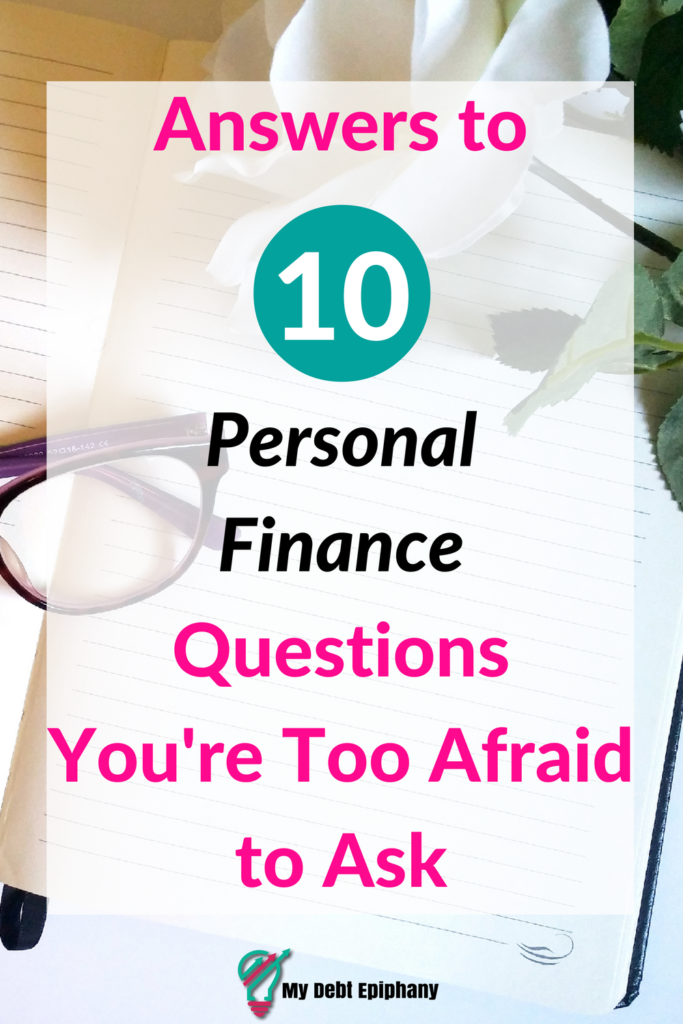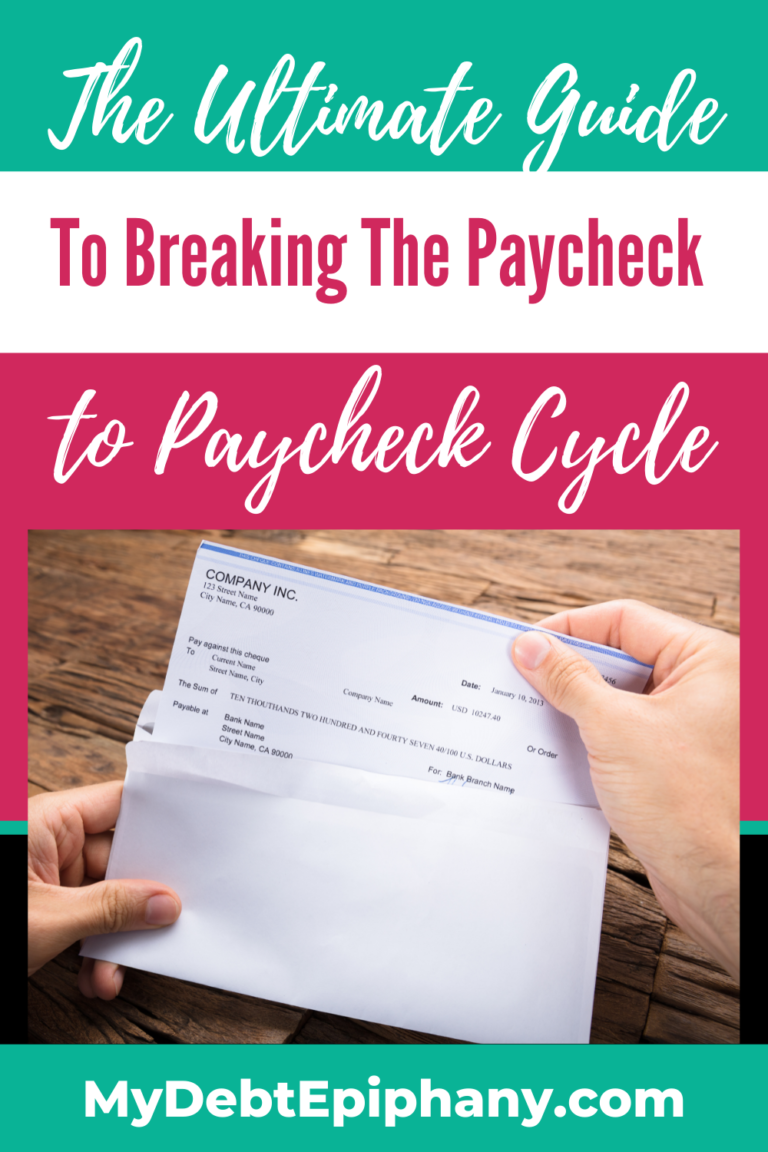10 Personal Finance Questions You’re Too Embarrassed To Ask As An Adult
A good investment banker or credit counselor should tell you that there are no stupid questions, just unasked ones.
Yet and still, if you’ve ever had burning questions about personal finance, you may have been afraid to ask for fear of being judged or even looking silly for not knowing the answer. As you can see, holding back your questions will only hold you back financially instead of allowing you to move forward. Plus, many people tend to have similar questions regarding personal finance so you shouldn’t ever feel singled out like you’re the only one.
Here are answers to 10 personal finance questions you may have been to too embarrassed to ask about.
Table of Contents
Past Credit History Questions
1. I keep seeing this “APR” in commercials and on my credit card statements. What is that?
APR is the acronym for “Annual Percentage Rate.” It is what your credit card holder will charge you if you don’t pay your balance off in full every month. Often the credit card company will advertise a low rate just so that you will apply for their card. However, the rate you get if approved may be higher depending on your credit score, or the low rate may be only for a short “honeymoon” period. Make sure you keep track of what your APR is every month.
2. You just mentioned credit score. What is that and how do I find out what mine is?
A credit score is based on how trustworthy you are in terms of paying back the money you borrow and how well you pay your bills. It can impact your ability to get a loan for car or a home, or getting other credit cards.
Important factors that impact your credit score include on-time or late payments, the length of your credit history, and open, closed, collection, or charged-off accounts. A charge-off account means you didn’t pay as agreed and the company finally “wrote you off” their books.
That doesn’t mean that you are off the hook for the amount. They may have turned it over to a collection company, or be in the process of suing you for the funds. Some financial companies prefer to see open accounts with zero balances rather than open accounts with high balances and payments.
The range of scores is between 350 to 800 and naturally, the higher your score the better your credit. If you have a low score and are struggling financially, consider contacting a credit counseling agency that can help you get back on track. There are three major credit reporting companies, and you can get your credit rating from them for free once a year, but there are many companies that you can use to get your credit rating for free at any time of the year. You can get a full credit report for free each year by going to AnnualCreditReport.com.
Related Article: Credit Cards Are Not Evil: Don’t Make These Common Credit Card Mistakes
Budgeting For Your Future
3. Budget? Seriously? How do I get one started?
Budgets don’t have to be scary, and there are many apps and software programs that you can download to use. Basically, budgeting is keeping track of where your money goes each month and figuring out where you can save more money to put towards an emergency fund or to make a big purchase like buying a house.
I used to share budget reports monthly on the blog and they are a great reference so you can see what a typical budget looks like.
4. I’d love to be able to save money each month, but just don’t know where to start. How can I figure out where to start cutting back?
One of the easiest places to look for savings is what you are spending on your utilities. Often simple things like going to LED or CFL light bulbs will help reduce some of your electric costs, or making sure your home is properly winterized to lower your heating costs.
You can also look at where you spend your “discretionary” money each month ~ what you have left after paying all your bills. If you eat out more than once a week, you might start cooking at home more and eating out only once a week. If you spend quite a bit of going to the movies or purchasing pay-per-view movies, try signing up with a movie rental program, like Netflix, where you pay one low monthly fee.
5. You said something about an emergency fund. What is that and why do I need one?
An emergency fund is just that, money you set aside so that if your car breaks down. It could come in handy for a family emergency on the other side of the country that you have to fly out for, or [knock on wood] if you ever lost your job.
Ideally, you would want to save six months of what your cost of living expenses are, so if you add up your rent and utilities, and other payments you absolutely must make (a car payment and car insurance) each month. It does not include your “fun” money for eating out or movies. If all of that adds up to $1,500 a month, you would need to save $9,000. At the very least, you should save enough for three months.
Related Articles: How to Save Money in Almost Every Area of Your Life
30 ways to Save More Money While Living Paycheck to Paycheck
What a Years’ Worth of Budget Reports Can Do
How I Shop Smart and Save Money on Groceries
Investing
6. So would it be better if I bought a house I can use as an investment, or should I rent? I hate feeling like I’m throwing my money away each month on rent.
Real estate can be a tricky investment since the housing market can fluctuate to extremes at times, and your job might move you to another city away from the house you purchased. If you can’t sell it immediately, or rent it out for the cost of the mortgage, it can quickly become a liability for you because you will have to two house payments.
Also, when you purchase a house, you are responsible for all the upkeep and repairs, not a landlord. The only way to really decide whether you should rent or buy will be whether or not you think that the home will be where you want to stay for a long period of time, and if the rental market would be good for it if you have to move.
7. I hear my co-workers talking about IRAs, Roth IRAs, 401(k)s, and playing the stock market. I just don’t understand all that. What is the difference between an IRA and a Roth IRA?
Both of them are another way to save money. It is like investing in yourself. The IRS allows you to put in a set amount of money each year, but you can’t take the money out before you are at a retirement age without having to pay penalty. The difference between them is based on whether or not they are tax deductible and when (or if) you would have to pay taxes on it when you withdraw the funds.
- IRAs are tax deductible, but you have to pay taxes on them when you withdraw the money.
- Roth IRAs aren’t tax deductible, and when you withdraw your funds from them when you retire, you won’t have to pay any taxes on them.
8. Ok, so what about a 401(k)?
A 401(k) can be offered by your employer, and they will usually match the funds (up to a certain amount) that you contribute out of your paycheck. In this case, you are investing in the company you work for. It is still money you can’t withdraw from without penalties before you get to a retirement age, but there are tax advantages to having one.
9. My next door neighbor is always bragging about how well his stocks are doing and wants me to let him invest money in stocks for me. I’m a little wary of doing that because I just don’t know him that well. Should I do it?
Like the housing market, the stock market can sometimes feel like a roller coaster ride. There are investment companies that can handle your money for you and advise you on the best investments.
You can also do the investing on your own, or let your neighbor do it, but make sure you have all the information you need on the companies you invest in so that you don’t invest in a bogus company. If you aren’t sure which way to go, you can always set up an appointment with a large investment firm, like Fidelity or Charles Schwab, and have them walk you through what they offer and recommend. If you are already feeling uncomfortable with giving your neighbor your money, listen to your gut instincts and go with an established investment firm.
10. What about banks? Should I go with a credit union, or a traditional bank?
The biggest difference between the two is that banks are for-profit, and credit unions are non-profit.
It used to be that you couldn’t join or bank at a credit union without being part of a select group of people, for instance, Lockheed Martin employees could bank at the Lockheed Martin Credit Union, but non-employees couldn’t. Now some credit unions are a little more flexible and open their doors to everyone. They may not have minimum fees to keep in your accounts and fewer restrictions on using your funds. When you bank at a credit union, earnings are paid back to members in the form of higher savings rates, dividends, and lower loan rates. Some even offer interest on checking accounts.
Traditional banks don’t offer interest rates on your checking or savings accounts so your money won’t be “working for you” while it sits in your accounts. They will also charge for using them unless you do one of the several things:
- Keep a minimum balance in your account,
- Have your paycheck direct deposited, or
- Transfer funds from your checking to savings once a month.
Both of them may offer investment opportunities, like a CD, but at different interest rates. Some people prefer getting CDs instead of, or in addition to, an IRA because the money is readily available for withdrawal.
Related Articles: Have Debt But Want to Invest? Here’s What You Need to Know
Preparing for Early Retirement as a Millennial
8 Financial Moves You Need to Make in Your 20s
Which is Better? Credit Union or Traditional Bank?
No matter how you choose to invest, spend, or save your money, the key thing is to remember that there are no stupid questions, only unasked ones.

P.S. I Need Your Help
In order for me to continue to share valuable stories and information to make this site as helpful as possible, I need feedback on the content as well as suggestions for what you’d like to see. If you could just take a few minutes to complete a brief survey, it would mean the world to me. I value your opinion and your time which is why I made this survey short and sweet and easy to complete in under 3 minutes. You can find the survey here. Thank you so much for your support!
Have you ever felt too afraid to ask a personal finance question only to find out other people have been wondering about the same topics as well?
Stop Worrying About Money and Regain Control

Join 5,000+ others to get access to free printables to help you manage your monthly bills, reduce expenses, pay off debt, and more. Receive just two emails per month with exclusive content to help you on your journey.





